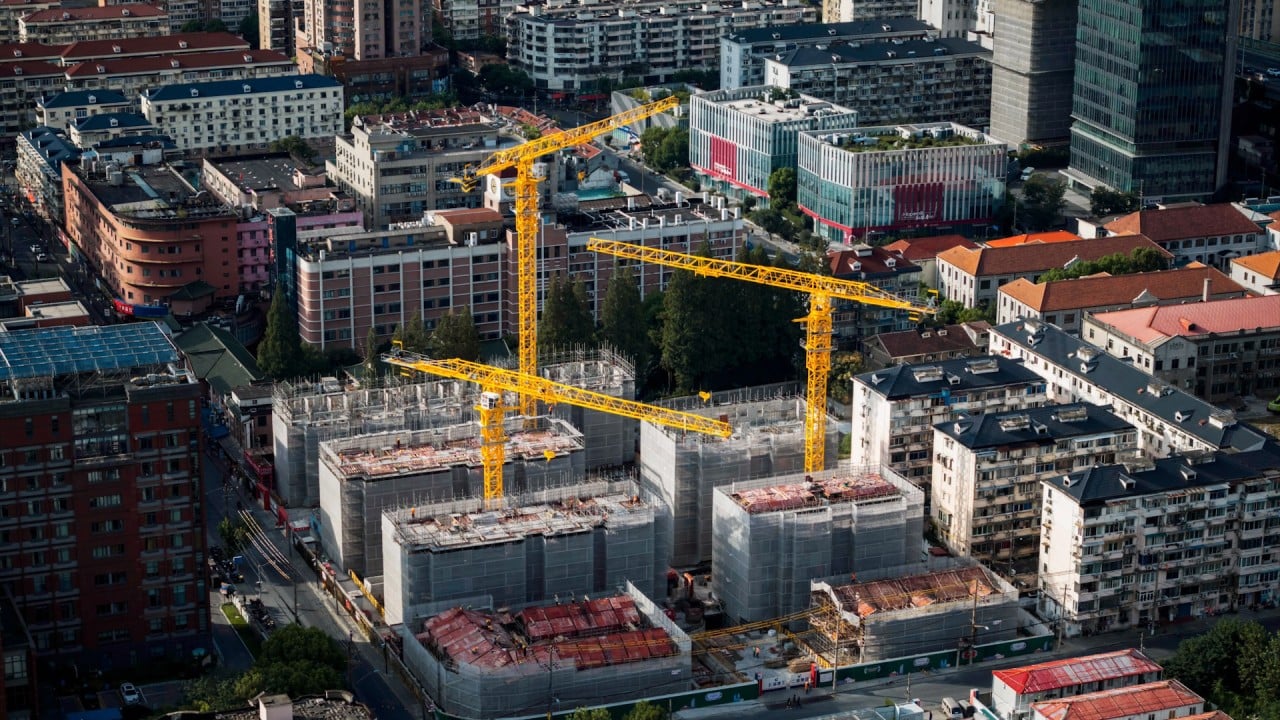
China’s property crisis is a US$261 billion credit pain for lenders, trust firms and insurers, Goldman says
- About 1.9 trillion yuan (US$261 billion) or almost 10 per cent of property financing in China could turn sour, get worse as fallout persists: Goldman
- More than US$149 billion of market value has been erased from stocks in two major Chinese indices this year as the property market cracks
The banking sector accounted for 75 per cent of debts owed by real estate developers totalling 19.3 trillion yuan (US$2.65 trillion) at the end of June last year, the US investment bank said in a report. Trust firms and insurers held 16 per cent and 6 per cent respectively, with brokers and other investors making up the balance.
Goldman analysts said the distress in China’s property market could trigger 1.9 trillion yuan of credit losses, based on a 10 per cent loss rate derived from recent cracks in the bond market. Banks could shoulder 1.2 trillion yuan or 61 per cent of the losses, while trust firms suffer 28 per cent and insurers 5 per cent, they forecast.
“Credit risks are concentrated in property developer debt and exacerbated by the low level of housing activity, as presales are an important funding source for developers,” Goldman said. “Any broad restructuring efforts towards developer debts would have implications across both Chinese banks and trust companies.”
The wobbles in China’s property industry, once a pillar in the nation’s US$18 trillion economy, are already inflicting losses elsewhere. Growth has tapered and could soon be a drag on the economy, while developers fell behind on their debt repayment, roiling investors in wealth management products sold by trust companies linked to Zhongzhi Enterprise Group.
Why a default isn’t the worst possible news for Country Garden
More than two-thirds of the US$166 billion of offshore bonds issued by Chinese developers are in default as the crisis prolonged since Beijing began its infamous “three red lines” clampdown in August 2020. Country Garden, once the nation’s biggest player and “whitelisted” by Beijing with credit support, is the latest to crack under its debt load.
The CSI 300 Index has declined 4.5 per cent this year, while the Hang Seng Index has tumbled about 10 per cent in Hong Kong, erasing US$149 billion of market capitalisation along the way. An index tracking 44 mainland-listed banks, however, has outperformed with a 5.7 per cent gain, according to data provider Shanghai DZH.
Pessimism about China’s property market overblown, says veteran economist
Despite the predicted credit losses, China’s biggest state-controlled banks should have more than enough capital buffer to overcome the current crisis, it added. Their smaller peers may struggle.
“Smaller banks appear to be the weaker part of the banking system, and a comprehensive restructuring of the property sector may need to be accompanied by restructuring or recapitalisation,” Goldman said. Investors should brace for “more and faster formation of non-performing loans” given the losses in property bonds and shadow banks, it added.


